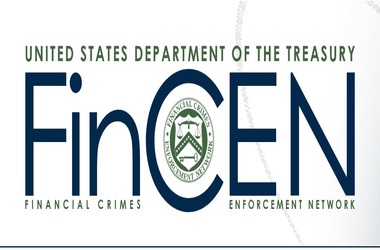
The filing of Suspicious Activity Reports (SAR), as it is referred to, is playing an important role in providing the leads for law enforcement agencies. The information was revealed by Blanco while delivering a speech at the 2018 Chicago-Kent Block Legal Tech Conference conducted on August 9.
FinCEN’s director explained the agency’s role in law enforcement and regulation of the cryptocurrency sector. He explained that the agency works in a synchronized manner with the SEC (Securities and Exchange Commission) and the US CFTC (Commodity Futures Trading Commission).
Blanco stated
“[While] innovation in financial services can be a great thing… we also must be cognizant that financial crime evolves right along with it, or indeed sometimes because of it, creating opportunities for criminals and bad actors, including terrorists and rogue states.”
Blanco stressed the need for all parties involved in the cryptocurrency sector to be compliant with appropriate regulatory measures in order to protect the “incredible innovations” of the financial technology sector. He pointed out that “harm can be done with devastatingly increasing speed, breadth, and obscurity in the digital world.”
The FinCEN’s March 2013 guidelines clearly stipulate that receipt or transfer of fiat currency’s value through the use of crypto or any other vehicle is regarded as money transmission and necessitates regulatory obligations in accordance to the US Bank Secrecy Act (BSA).
Therefore, being money transmission businesses (MSB), cryptocurrency exchanges are expected to regularly send SARs and Currency Transaction Reports (CTRs), while complying with anti-money laundering (AML) and countering the financing of terrorism (CFT) rules.
Blanco further stated that similar obligations apply to “tumblers” or “mixers” that offer transaction concealing services. Even those agencies which operate outside the US, but deal with the country’s residents are monitored by FinCEN.
As an example, the director described the action taken by FinCEN in 2017 against Russian cryptocurrency exchange BTC-e for defying AML laws. Blanco revealed that SAR played a major role in bringing the perpetrators to justice. He also opined that SARs filed by both banks and cryptocurrency exchanges often gives the necessary lead to the law enforcement agencies.
While acknowledging an increase in the submission of SARs, the regulator is surprised to see firms taking necessary actions to meet their obligations “only after they receive notice [that an examination is forthcoming].”
Blanco warned “Let this message go out clearly today: This does not constitute compliance.”
Blanco also revealed that FinCEN, Internal Revenue Service (IRS) and BSA examiners have verified over 30% of all cryptocurrency exchanges and administrators since 2014. With regard to ICOs (initial coin offerings), Blanco emphasized that despite falling under multiple US regulatory agencies’ purview, their CFT and AML obligations remain unchanged.